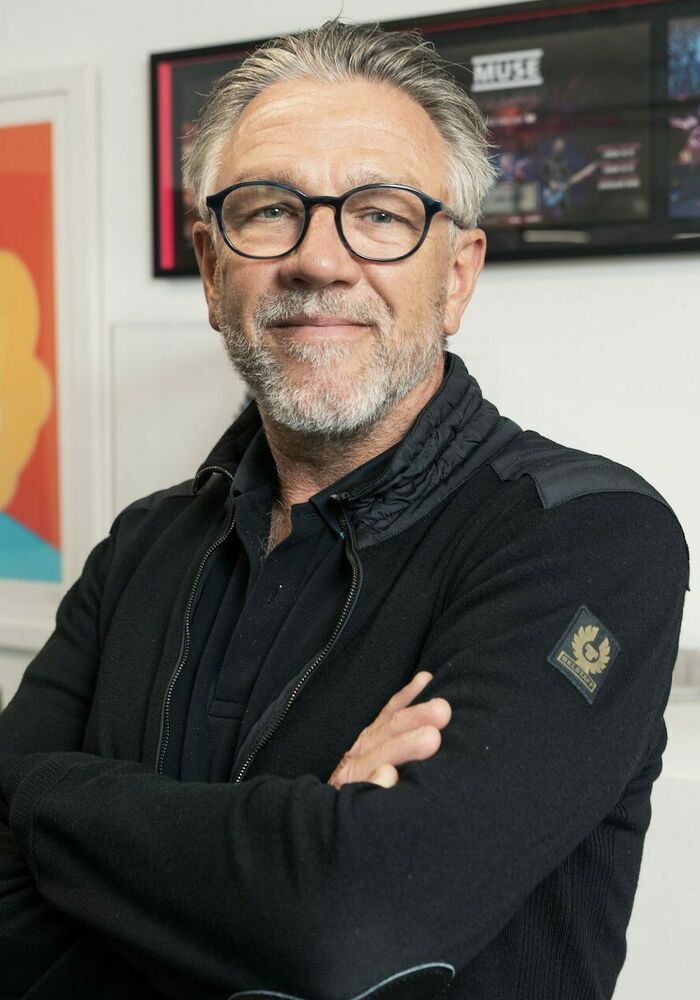One of the most influential figures in the world of live music and events promotion, KMJ Entertainment Group CEO Stuart Galbraith has been at the forefront of his industry for over four decades. From the days of traditional print promo to today’s increasingly sophisticated methods, his ability to stay ahead of the curve has been central to his success, as has his knack for understanding how and when to diversify and extend his reach into new markets. Headliner paid him a visit to discuss what drove him from being a budding stage manager and techy while at university to become one of the music industry’s most pre-eminent promoters, as well as the trends he sees shaping the sector as we know it…
At the time of Headliner’s visit to KMJ Entertainment Group’s London HQ, the company has just released news of a significant rebrand of the company. The day before our arrival, the company, which is currently comprised of some 16 brands spanning the live entertainment industry, was known as Kilimanjaro Live. Founded by CEO Stuart Galbraith in 2008 with a staff of two, Kilimanjaro Live has evolved and expanded from a live music promoter in its earliest iteration to encompass everything from theatre, comedy, conferences, and spoken word events. Selling a combined total of over four million tickets a year across its portfolio, and with in excess of 160 staff, Galbraith felt a restructuring of sorts was required to provide a degree of clarity, both externally and internally, as to the role Kilimanjaro Live serves alongside its sister brands (Regular Music, Singular, Fane, Flying Music, Gigantic, Myticket, Belladrum, JAS Theatricals, UK Live, FORM, Tickets.ie, Kontour, How To Academy and Arches London Bridge).
“We felt it was the right time to change the group name because Kili started off as a music company, but it was also the name of our holding company,” Galbraith explains as we join him in a boardroom lined with tour posters for many of the high profile shows and productions he has promoted. From Simply Red and Ed Sheeran to recent West End hits like Hades Town, the décor neatly illustrates the scope of KMJ’s remit in 2024. “Now, because music represents a piece – still a very important piece – of what we do, it was causing confusion that Kili was the name of the music company as well as the holding company,” Galbraith continues. “So KMJ is really the umbrella organisation that sits over all of our operating companies, and within music we have several companies that work very closely with Kilimanjaro Live.”
The eclectic nature of KMJ’s operations, and Galbraith’s relentless drive for diversification, are themes that underpin much of our conversation during the morning we spend together. From his formative years through numerous personal and professional milestones, a refusal to stand still and a distinctly proactive approach to business have been instrumental in carving out the road that has taken him from studying Biophysics and Microbiology in 1980 where he is today.
“It started the day that I went to university in Leeds,” he remembers, discussing how his aspiration for a career in science was side-lined quite literally from day one. “I joined Ents in freshers’ week as a stage crew member. I started going to gigs on a regular basis and I remember seeing the Thompson Twins at The Warehouse, which was the first club show I’d been to. From there I started unloading trucks, then became a stage manager and it moved on from there.
“As for why I moved away from stage management and production and towards promotion, I was purely and simply surrounded by good mentors at Leeds. The Ents head before me was a guy called Dave Goodman, who is still a friend to this day, and there was Andy Kershaw the BBC Radio DJ. And at that time, Leeds university was a great venue because it was getting a lot of shows as there wasn’t really another significant sized venue in the Leeds Bradford area. In the few years we were at Leeds we did U2, ZZ Top, The Clash, Simple Minds, and just before I arrived, Bob Marley played there.”






